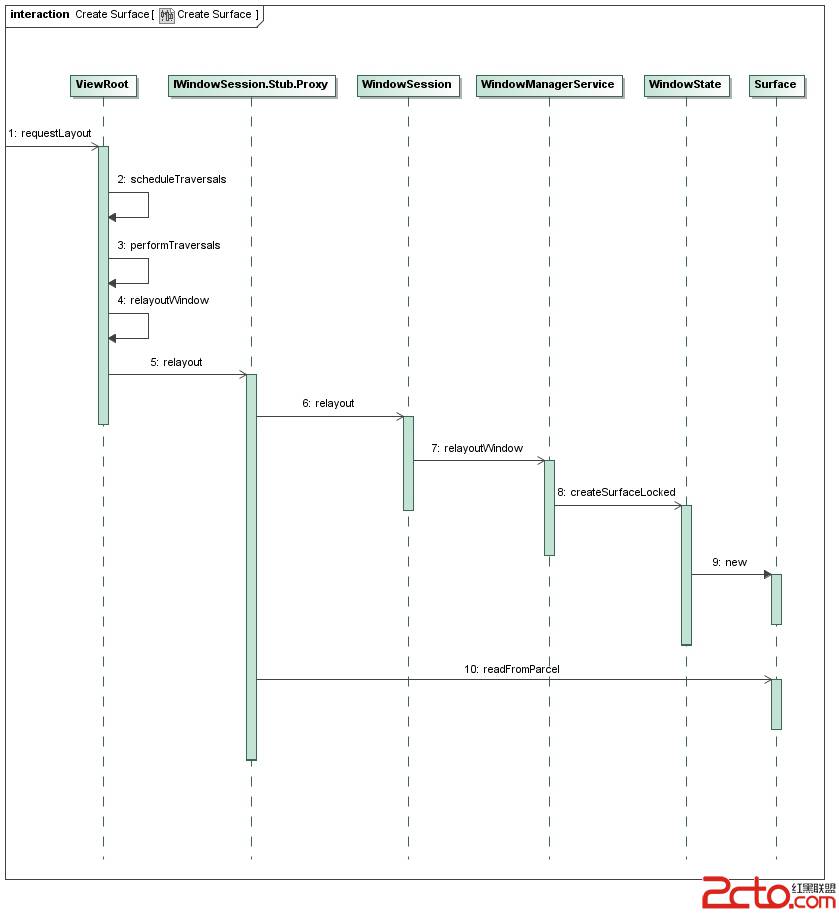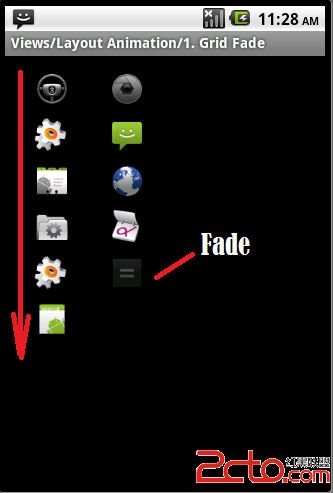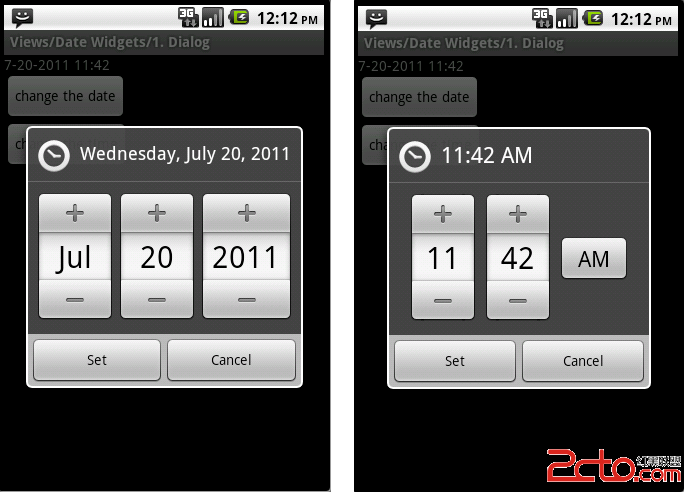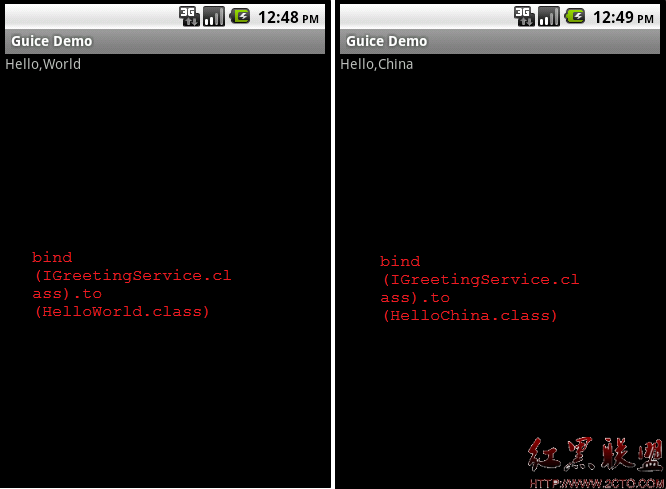android4.0 中如何在app 中屏蔽HOME键
近日在研究一个视频锁的功能,即在 视频播放界面上设一个锁的功能,当该锁起效后,就会屏蔽back, home, menu三个键的功能。
back 和 menu 键都可以通过 app层 的 onKeyDown 和 onKeyUp 函数来拦截。但是 home 键不行。
于是上网查了一下在app层屏蔽 home 键的方法。
主流的方法如下所示。但只在2.2,2.3平台下有效。(下面列举的方法只在android 2.2, 2.3 上有效)
屏蔽Activity, Dialog风格Activity, AlertDialog的Home键功能方法分别是:
1.屏蔽Activity中的Home键功能,只需要在你要屏蔽的activity 中重写 onAttachToWindow() 这个函数就可以了
[java]
@Override
public void onAttachedToWindow() {
this.getWindow().setType(WindowManager.LayoutParams.TYPE_KEYGUARD);
super.onAttachedToWindow();
}
@Override
public void onAttachedToWindow() {
this.getWindow().setType(WindowManager.LayoutParams.TYPE_KEYGUARD);
super.onAttachedToWindow();
}
2.屏蔽 Dialog风格Activity的Home键功能,也需要在你要屏蔽的activity 中重写 onAttachToWindow() 这个函数,但设置window 的值需要改变为 TYPE_KEYGUARD_DIALOG
[java]
@Override
public void onAttachedToWindow() {
this.getWindow().setType(WindowManager.LayoutParams.TYPE_KEYGUARD_DIALOG);
super.onAttachedToWindow();
}
@Override
public void onAttachedToWindow() {
this.getWindow().setType(WindowManager.LayoutParams.TYPE_KEYGUARD_DIALOG);
super.onAttachedToWindow();
}
这里之所以和Activity区分,是因为Dialog风格Activity如果用第一种方法,这个Dialog风格Activity的背景就变成黑色的,而不是透明的.
3.屏蔽AlertDialog的Home键功能
[java]
AlertDialog d = b.create();
d.getWindow().setType(WindowManager.LayoutParams.TYPE_SYSTEM_ALERT);
AlertDialog d = b.create();
d.getWindow().setType(WindowManager.LayoutParams.TYPE_SYSTEM_ALERT);
后面通过上面一篇文章的思路来看 4.0平台的 framework 层的代码,发现在 PhoneWindowManager.java 的 interceptKeyBeforeDispatching 函数中对home键的处理如下:
[java]
if (keyCode == KeyEvent.KEYCODE_HOME) {
// If we have released the home key, and didn't do anything else
// while it was pressed, then it is time to go home!
if (mHomePressed && !down) {
mHomePressed = false;
..
}
// If a system window has focus, then it doesn't make sense
// right now to interact with applications.
WindowManager.LayoutParams attrs = win != null ? win.getAttrs() : null;
if (attrs != null) {
final int type = attrs.type;
if (type == WindowManager.LayoutParams.TYPE_KEYGUARD
|| type == WindowManager.LayoutParams.TYPE_KEYGUARD_DIALOG) {
// the "app" is keyguard, so give it the key
return 0;
}
final int typeCount = WINDOW_TYPES_WHERE_HOME_DOESNT_WORK.length;
for (int i=0; i<typeCount; i++) {
if (type == WINDOW_TYPES_WHERE_HOME_DOESNT_WORK[i]) {
// don't do anything, but also don't pass it to the app
return -1;
}
}
final int flag = attrs.flags;
if ((flag & WindowManager.LayoutParams.FLAG_HOMEKEY_DISPATCHED) != 0) {
// the window wants to handle the home key, so dispatch it to it.
return 0;
}
}
return -1;
if (keyCode == KeyEvent.KEYCODE_HOME) {
// If we have released the home key, and didn't do anything else
// while it was pressed, then it is time to go home!
if (mHomePressed && !down) {
mHomePressed = false;
......
}
// If a system window has focus, then it doesn't make sense
// right now to interact with applications.
WindowManager.LayoutParams attrs = win != null ? win.getAttrs() : null;
if (attrs != null) {
final int type = attrs.type;
if (type == WindowManager.LayoutParams.TYPE_KEYGUARD
|| type == WindowManager.LayoutParams.TYPE_KEYGUARD_DIALOG) {
// the "app" is keyguard, so give it the key
&
补充:移动开发 , Android ,




